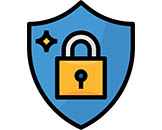Are you tired of paying a premium price for a simple Windows key? Have you ever wondered why these keys are so expensive? In this article, we’ll take a closer look at the factors that contribute to the high cost of Windows keys and explore some alternatives that may save you some money.
1. Introduction
Most PC users are familiar with Windows, the operating system developed and sold by Microsoft Corporation. Windows has been the dominant player in the desktop and laptop market for decades, thanks to its user-friendly interface and wide range of applications. However, one aspect of Windows that has long been a source of frustration for users is the cost of Windows keys.
2. What Are Windows Keys?
A Windows key is a 25-character alphanumeric code that activates a specific version of Windows. When you buy a new computer, Windows is pre-installed and activated, but if you need to reinstall or upgrade your system, you’ll need a valid Windows key to activate the new installation.
3. The Role of Windows Keys in Activation
Windows activation is a crucial part of the operating system’s security measures. Activation is required to verify that the copy of Windows you’re using is genuine and has not been pirated. Windows keys are unique to each copy of the operating system and are tied to the hardware configuration of the device.
4. The Cost of Developing and Supporting Windows
Developing and maintaining an operating system as complex as Windows is a costly endeavor. Microsoft invests billions of dollars each year in research and development, as well as providing ongoing support to users through updates, security patches, and technical assistance.
5. Competition and Market Dynamics
Competition in the operating system market has intensified in recent years, with the rise of open-source platforms like Linux and the growing popularity of macOS. This has put pressure on Microsoft to maintain its market share, which has traditionally been dominated by Windows. The cost of Windows keys is partly a reflection of Microsoft’s need to generate revenue to stay competitive in the marketplace.
6. Reselling and Third-Party Key Sales
Windows keys are often resold by third-party vendors at a lower price than the official Microsoft store. While these keys may seem like a bargain, there are significant risks associated with buying from unauthorized resellers. Counterfeit keys may not work or may be deactivated by Microsoft, leaving you with a useless product and no recourse for a refund.
7. Security Concerns and Counterfeit Keys
Counterfeit Windows keys pose a significant security risk to users, as they may contain malware or other malicious code. Microsoft has implemented several measures to prevent the use of counterfeit keys, including regular updates to the activation system and a blacklist of known bad keys.
8. Alternatives to Buying a Full Windows Key
If you’re looking for a more affordable way to obtain a valid Windows key, there are several alternatives available. One option is to purchase a refurbished computer that already has Windows installed and activated. Another option is to use free or open-source operating systems like Linux, which offer many of the same features as Windows but without the cost.
9. Conclusion
While the cost of Windows keys may be frustrating for some users, it’s important to remember that these keys play a critical role in maintaining the security and integrity of the operating system. Microsoft invests significant resources in developing and maintaining Windows, and the cost of the keys reflects the value of the product. That being said, there are alternatives available for those who are looking to save some money or try out different operating systems.
10. FAQs
- Are Windows keys really necessary for activation? Yes, Windows keys are required to activate a new installation of Windows to ensure that the copy is genuine and not pirated.
- Why are Windows keys so expensive? The cost of Windows keys reflects the significant investment that Microsoft makes in developing and maintaining Windows as a product, as well as the company’s need to generate revenue to stay competitive in the marketplace.
- Can I trust third-party vendors for Windows keys? There are significant risks associated with buying Windows keys from third-party vendors, including the possibility of receiving counterfeit or deactivated keys. It’s best to purchase from authorized retailers or use alternative operating systems.
- Are there any alternatives to buying a full Windows key? Yes, you can purchase a refurbished computer that already has Windows installed and activated, or try out free or open-source operating systems like Linux.
- Can I use a Windows key on multiple devices? No, each Windows key is unique to a specific device and cannot be used on multiple devices at once.
In conclusion, while the cost of Windows keys may seem high, it’s important to remember that they play a critical role in maintaining the security and integrity of the operating system. While there are alternatives available, it’s important to weigh the risks and benefits before making a decision. By understanding the factors that contribute to the cost of Windows keys, you can make an informed decision about whether or not to invest in this essential component of your computer system.
